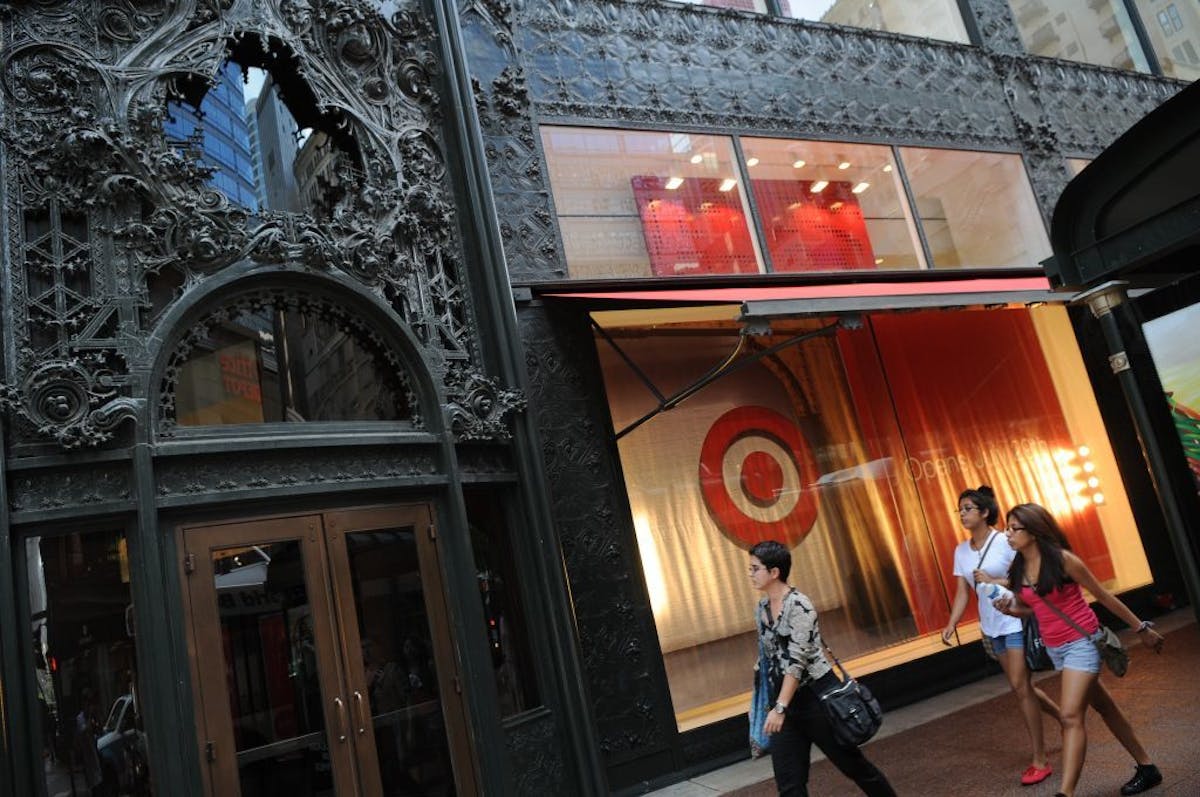SPRING VALLEY, CALIF. - Since the Fresh & Easy grocery chain was founded five years ago, it has opened 150 markets in California and positioned itself as a hip, socially responsible company.
A cross between Whole Foods and Trader Joe's, the company brags that its house brands have no artificial colors or trans fats, that two-thirds of its produce is grown locally and that its main distribution center is powered by a $13 million solar installation.
But in one crucial respect, Fresh & Easy is just like the vast majority of large U.S. retailers: Most employees work part time, with its stores changing many of their workers' schedules week to week.
At a Fresh & Easy store just east of San Diego, Shannon Hardin oversees seven self-checkout stations, usually by herself. Typically working shifts of five or six hours, she hops between stations -- bagging groceries, approving alcohol purchases, explaining the checkout system to shoppers and watching for shoplifters.
"I like it. I'm a people person," said Hardin, 50, who used to work as an office assistant at a construction company.
But after nearly five years at Fresh & Easy, she remains a part-time worker despite her desire to work full time. In fact, all 22 employees at her store are part time, except for the five managers. She earns $10.90 an hour, and with workweeks averaging 28 hours, her yearly pay equals $16,500. "I can't live on this," said Hardin, who is single. "It's almost impossible."
'70 percent part time'
While there have always been part-time workers, especially at restaurants and retailers, employers today rely on them far more than before as they seek more flexibility to align staffing to customer traffic and as they seek to cut payroll costs. This trend has frustrated millions of Americans who want full-time jobs.
"Over the past two decades, many major retailers went from a quotient of 70 to 80 percent full time to at least 70 percent part time across the industry," said Burt P. Flickinger III, managing director of the Strategic Resource Group.
No one has collected detailed data on part-time workers at major U.S. retailers. However, the Bureau of Labor Statistics has found the retail and wholesale sector, with a total of 18.6 million jobs, has cut 1 million full-time jobs since 2006, while adding 500,000-plus part-time jobs.
Technology is speeding this transformation. Many retailers now use sophisticated software that tracks the flow of customers, allowing managers to assign just enough employees for the anticipated demand.
"Many employers now schedule shifts as short as two or three hours, while historically they may have scheduled eight-hour shifts," said David Ossip, founder of Dayforce, a producer of scheduling software used by chains like Aeropostale and Pier 1 Imports.
Some employers ask workers to come in at the last minute. If unavailable, the workers risk losing their jobs or receiving fewer future hours.
The widening use of part-timers has pushed many into poverty and forcing some onto food stamps and Medicaid. And with schedules that change week to week, workers can find it hard to arrange child care, attend college or hold a second job, said interviews with more than 40 part-time workers.
Fueled by big-box stores
The rise of big-box retailers, with long operating hours and complex staffing needs, also has contributed to the increase.
David Henson, a former assistant manager at a Thief River Falls, Minn., Wal-Mart, said part-timers, many single mothers, would come to his office on the brink of tears. "They desperately wanted more hours, but we weren't able to give them."
Some, Henson said, were eager to take second jobs. But if they were unavailable at certain times, then their hours would be reduced further, he said. Many workers concluded it was not worth it.
David Tovar, a Wal-Mart spokesman, said that fewer than half of Wal-Mart's hourly employees were part time and that the company provided better wages and benefits than competitors. But he acknowledged part-timers with less availability typically were assigned fewer hours.
Katherine Lugar of the Retail Industry Leaders Association said the industry's scheduling practices worked well and that retailers did their best to accommodate employees.
"Happy employees provide better service," she said.
Former Michigan House leader and wife charged with misusing political funds
United Airlines reports $124 million loss in a quarter marred by grounding of some Boeing planes

